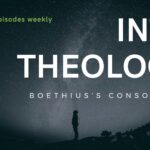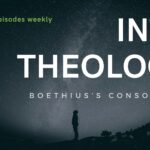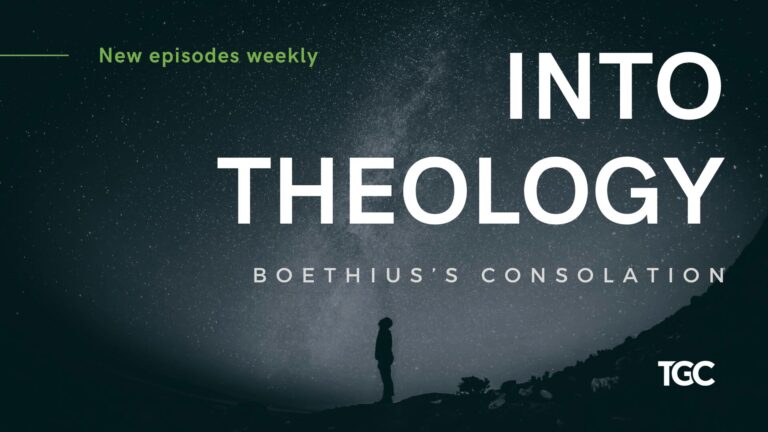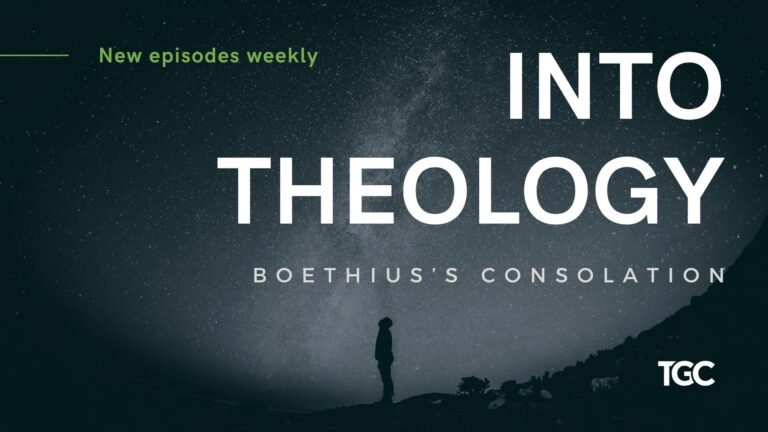Christian worship begins and ends in the worship of the name of the Father, and of the Son, and of the Holy Spirit (Matt 28:19; Rev 4–5). Yet some object to the doctrine of the trinity as if it were some external imposition upon Scripture. It is not.
Our theology of God flows from our worship of his triune name.
Baptism
The first act and entrance into the Christian faith is baptism into the name of the Father, of the Son, and of the Holy Spirit. Jesus commissioned his disciples to “go and make disciples of all nations, baptizing them in the name of the Father and of the Son and of the Holy Spirit” (Matt 28:19). The first stage of discipleship is baptism into the name of the three.
Significantly, the word “name” in this passage is in the singular (it is not “names”). Jesus specifies a singular name that comprises the Father, the Son, and the Holy Spirit. He makes a statement of unity around the name—which can only be the name of God which is: Father, Son, and Holy Spirit (cf. Phil 2:9).
Baptism, as the entryway into the Christian faith, then embeds triune worship through the mode of entry (baptism into the name of the three). The triune baptism into one name of the three gives us our basic framework for worship. It starts here. And it continues here.
Supper
Every week, then, the Holy Spirit deepens our union with Son at the Lord’s Table. At the table, we experience an intensifying of our union with Christ in whose face we see the Father. Jesus gave us this framework during the words of institution (e.g., Luke 22:19–20).
Paul interprets Jesus’ words of institution and the Lord’s Supper in general by specifying that Christ’s body and blood for us signify a participation in the body and blood of Christ: “Is not the cup of thanksgiving for which we give thanks a participation in the blood of Christ? And is not the bread that we break a participation in the body of Christ?”(1 Cor 10:16).
John Calvin makes the observation that Jesus in John 6 speaks about the reality to which the Lord’s Supper points: union with Christ. Hence, when Jesus says, “Whoever feeds on my flesh and drinks my blood abides in me, and I in him” (John 6:56), he signals that feasting on his flesh and blood means abiding in him.
That matches the sense that Paul draws out above by his use of the word “participation.” In short, the Lord’s Supper, among other things, reminds, refreshes, and renews our union with Christ.
This union only happens by the Holy Spirit (1 Cor 6:17, 19). And our union brings us to the Father through the Son (e.g., John 14:6). While more could be said, the central point here is that the Lord’s Supper deepens our experience of union with Christ, and union with Christ means communion with the Father through the Son and by the Spirit.
Baptism introduces our worship of the three; the Supper deepens it. Christian worship begins with a triune shape and continues its worship of the three through the Lord’s Supper.
Worship
The double ordinance of baptism and the Lord’s Supper has a trinitarian shape. So do the other elements of worship:
- We pray by the Spirit to the Father because of the Son our advocate.
- We worship in Spiritual songs because of Christ to the glory of the Father.
- We receive the spoken word as the Word of God (Christ) speaking to our hearts by the Spirit as we live to obey the Father.
Put simply, baptism not only introduces us to the three but also embeds for us the basic schema for Christian worship. The Lord’s Supper every week (or as often as a church practice it) brings us ever closer to the one who ascended the cross for us and for our salvation.
Theology
Since baptism, the table, prayer, and so on take on an explicitly triune shape in Scripture, we must make the following conclusion: our theology flows from our worship. This is how the early church understood theology.
When early heresies arose that denied Christ’s co-dignity for worship, Christians remembered their baptism. They remembered the table. They remembered how their entire scope of worship from top to bottom included glorifying the Father through the Son and in the Spirit.
Worship forms theology. It is the context where we do theology. And both are triune in shape.












